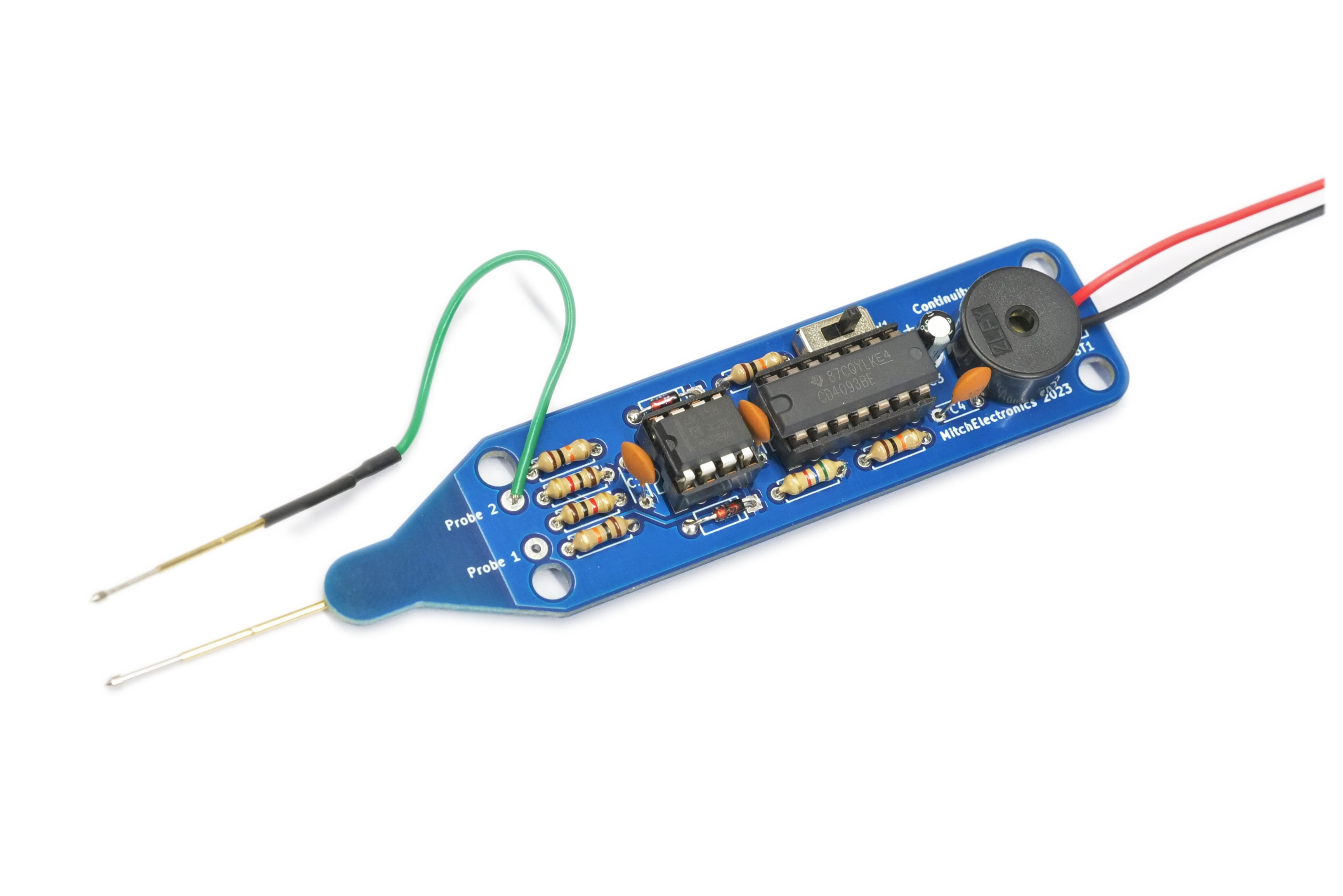


The Continuity Probe is a DIY tool used to test the electrical continuity of a wire between two points (hence the name Continuity Probe). If two points have electrical continuity, the Continuity Probe beeps its on-board buzzer, and this helps to quickly determine continuity without needing to read a display. However, what makes this kit special is that it uses a tiny amount of external current with diode protection to prevent damaging external circuits (simply using a battery and a buzzer on its own is a quick way to damage sensitive devices). The low external voltage is too small to damage anything, and the series limiting resistors prevent damage during a short circuit.
To make probing easier, this kit uses pogo-pins which are spring-loaded contacts. Thus, a small amount of pushing force can be provided to ensure proper contact while reducing the risk of mechanical damage to either the probe or the circuit being tested.
As the name suggests, the Continuity Probe is ideal for testing the continuity of electrical circuits, and the small, portable design of the Continuity Probe makes it ideal as a hand tool. The four mounting holes also enable makers to design their own enclosure for the probe, thus making it easier to use. At the same time, the Continuity Probe has been designed to demonstrate important circuit theories such as forward voltage drops of diodes, operational amplifiers in comparator mode, and how gated oscillators can be made using logic gates. Overall, this kit is excellent for those in the educational field looking to teach students how to design and build electronic circuits.
Note that product specifics such as output frequency depend on the tolerance of the components. The numbers provided here are an approximation only. Also take note that the estimated delivery is not guaranteed (unless special delivery is chosen) and free delivery has a maximum waiting time of two weeks. Any product that is returned which is built using lead solder is ineligible for a refund.
All parts sold by MitchElectronics are compliant with RoHS and REACH directives which ensure that they can be used in commercial environments as well as complying with environmental laws. Watch the video below to learn more about RoHS compliance and why it may be important for your next DIY project!
For full terms and conditions for all MitchElectronics products, click the button below.